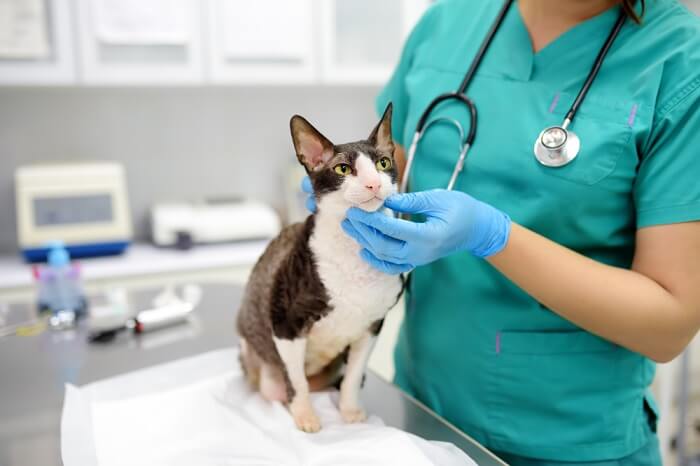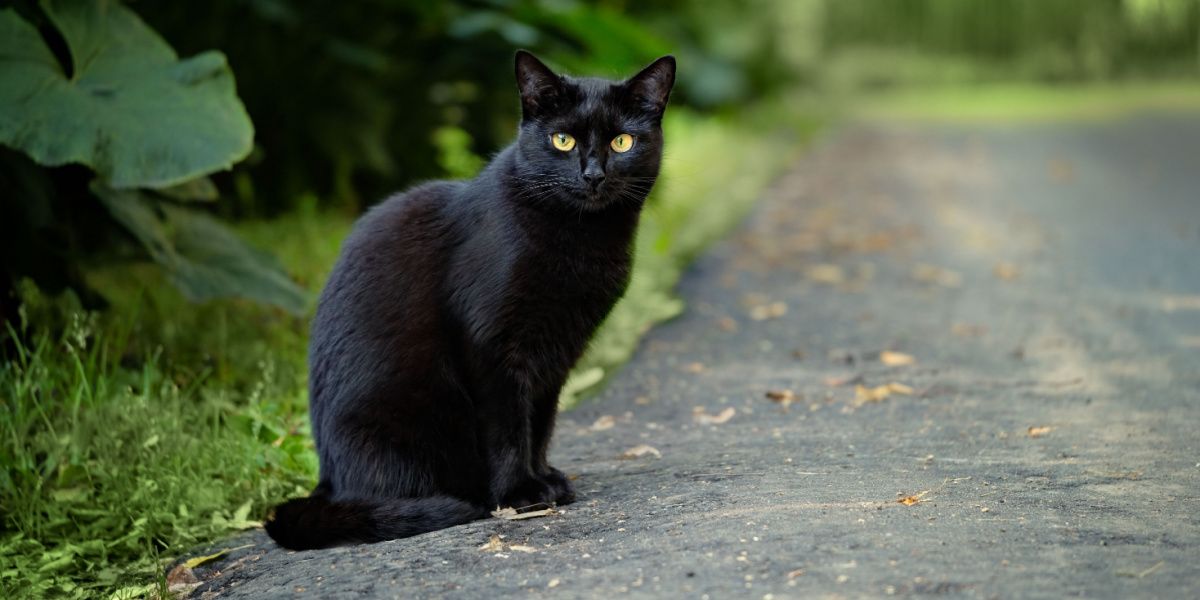
Most of us have heard stories about cats being able to find their way home from across great distances. One common tale is about the cat that manages to find their way back to their old house after a long-distance move. If these stories are true, how do cats manage to do this? It’s not as though they are able to read street signs, after all. Do cats just have a really good sense of direction?
The answer is yes, cats have a very strong sense of direction. Wherever they are, they always have a good idea of which way home is. This is called a “homing instinct” or “homing ability.” Relying on their senses, cats are very skilled at getting their bearings even in unfamiliar territory.
Let’s dig into this fascinating feline ability to wind up back home, even after they have traveled many miles and may even have been gone for a long time.
Also Read: How To Find A Lost Cat
Cats have a very good sense of direction, although it is unclear exactly what makes them so good at finding places. Most cats can find their way home if they get lost or have been placed somewhere far from their home. Some cats are much better at navigation than others depending on their experience outside and other individual characteristics.Key Takeaways
Cat’s Senses

Cats have an in-built “homing instinct” that allows them to use their senses to navigate long distances.
Cats interpret all the information their environment offers through their finely tuned senses<. They have a powerful sense of smell, excellent vision, and seriously acute hearing.
It is often assumed that a cat’s eyes and ears are the main contributors to their sensory input. However, cats have a few other tricks up their sleeves. Their sense of smell is incredibly well-developed. It is over 40 times more efficient than a human nose.
Cats also have an organ in the roof of their mouths called a “vomeronasal organ.” This allows them to use and communicate with chemical messengers called pheromones. They deposit their own pheromones onto objects or people and other animals by rubbing themselves against them. They have special glands on their faces, paws, and body which release their own unique pheromones. Other cats can sense these pheromones and the understand message they give.
By rubbing their scent on things in their neighborhood, cats are able to locate their home by following the trail of pheromones. They also use the scent of other cats to guide them. For example, if there is a big tomcat a few blocks down that marks his territory, your cat will recognize his pheromones and know they are close to their own territory.
Also Read: Understanding Your Cat’s Five Senses
Can Cats Use Their Sense Of Direction To Find Their Way Home?
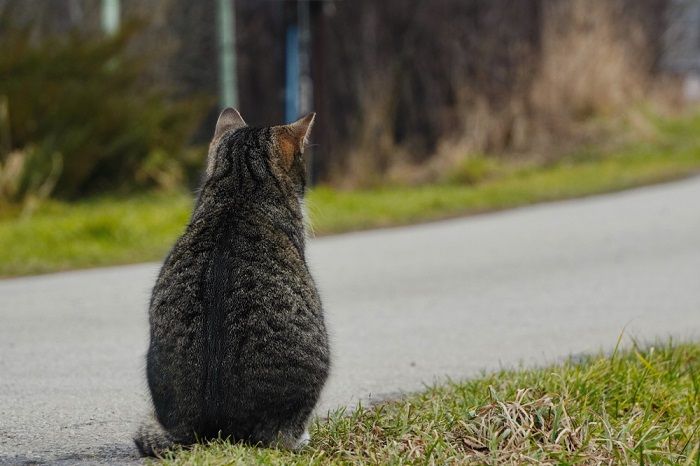
Cats use their own pheromones, as well as those of other cats, to find their way back to familiar territory.
We know through research that cats possess a very good sense of direction. One study published by Professor Frances Herrick called “Homing Powers Of the Cat” demonstrated that a mother cat, when separated from her kittens, was able to find her way back to them from various distances from 1 to 4 miles.
A similar study was conducted in Germany in 1954. Researchers carried out an experiment where cats were placed into a large maze with 6 exits for the cats to choose from. The study noted that the cats didn’t wander about the maze aimlessly, but found an exit very quickly.
The interesting finding of the German study was that 60% of the time, all cats chose an exit that was facing in the direction of their home, despite the fact it was many miles away.
These studies demonstrated what many pet owners have seen at home through anecdotal evidence. Lost cats seem to be able to find their way home. The question now is why they can do this.
Also Read: Lost and Found Pet Report
The Low Down On Cats’ Sense Of Direction
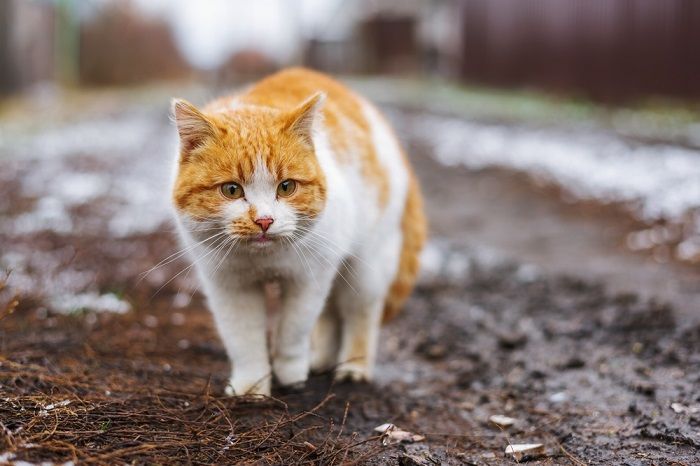
While cats can follow the scent of their pheromones to orient themselves, it is not completely clear why they have this ability.
We don’t actually know for sure why cats seem to have such a good sense of direction. There are a few different theories, though.
One theory is that cats may actually be able to sense the Earth’s magnetic fields. Some other species have demonstrated that they can align themselves in a North-South direction, suggesting they may be able to feel the influence of the earth’s magnetic pull.
Another theory is that the presence of iron in the inner ear and skin of mammals can act like a natural compass. This has yet to be proven.
Cats also use certain landmarks, have a good sense of spatial awareness, and are extremely well adapted to navigating through different-sized holes or gaps. They are able to remember how to move their bodies in and around different objects, including specific landmarks. Cats are creatures of habit and they often follow the exact same path in and out of their neighborhood as they recognize certain buildings or trees along their way.
All cats appear to have a homing instinct. This is true whether they are feral cats, strays, or indoor cats that haven’t stepped foot out of the house in their life. One caveat to be noted is that pet cats are much worse at navigating places they have never been before when compared to stray or feral cats.
This could be due to a lack of experience. It could also be because being outside can be incredibly stressful and overstimulating for an indoor cat. For a seasoned feral cat, being outside is the norm, and they are used to the noise and the smells.
It is reasonable to expect that there are individual differences between cats too. Some cats will just be better at recognizing places and smells than others.
Also Read: What To Do If Your Indoor Cat Gets Outside
What To Do If Your Cat Doesn’t Find Their Way Home

While all cats have a homing instinct, cats are individuals, and some are more skilled at navigation than others.
As mentioned above, some cats just aren’t as good at finding their way home as other cats. If you have just moved to a new home, your cat may not be familiar with the new location and this may mean they cannot find their way home or that it may take longer than usual for them.
Veterinarians generally recommend keeping cats indoors. It is common knowledge that outdoor cats have a shorter life expectancy than domestic cats. There is a much greater chance that they will be injured or become ill when living outside. There are many more dangers and perils for them to encounter in the outside world. Traffic, other predators, illness, injury – the life of an outdoor cat is at risk daily.
Spending more time outside does have a particular advantage for cats, which is that they become better at navigating their way around. Stray cats are good at finding their way back to safe territory. This is likely because they have to be; otherwise, they will not be safe.
Also Read: Why Do Cats Run Away From Home?
How To Prevent Your Cat From Getting Lost
1. Keep Them Indoors
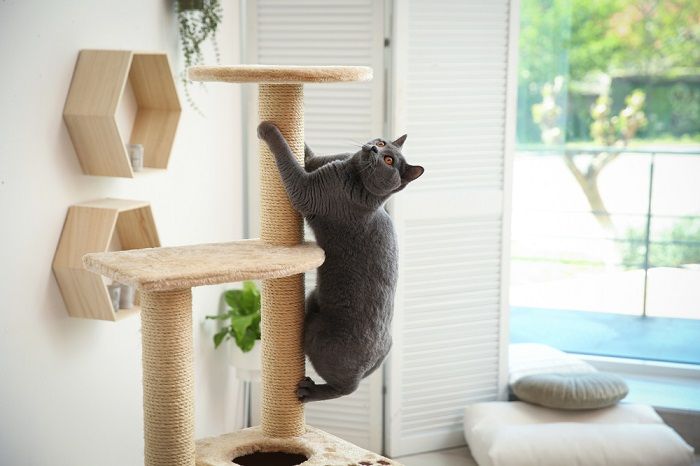
Cats can thrive indoors where they are safest when given enough stimulation and comfort.
Indoor cats are, of course, unlikely to stray too far and get lost. When raising a kitten, consider keeping them indoors completely from the get-go. A cat that is already used to going outdoors will have a more difficult time suddenly adjusting to being exclusively indoors. Because of this, it’s much easier to just keep cats indoors from the time that they are kittens.
Also Read: Should I Let My Cat Outside?
2. Be Aware Of All The Places They Go
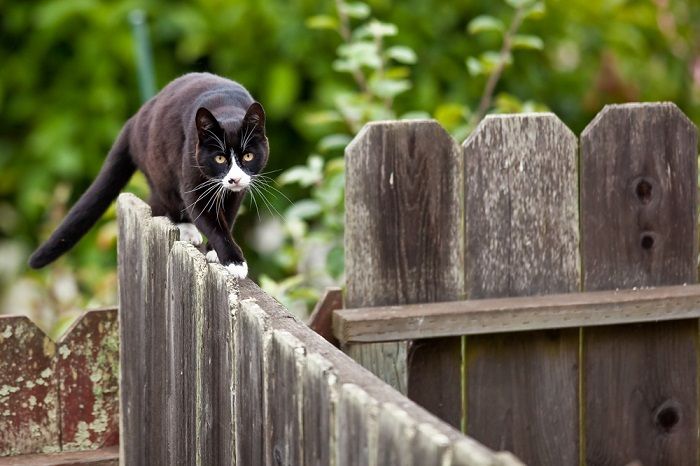
Cats are creatures of habit and generally have a routine revolving around the places they go to.
Make it your business to know all of your cat’s local haunts. Do they always stop at your neighbors for a sneaky treat? Are they a bit of a Six-Dinner Sid, visiting other cats’ houses for food? Do they follow you or your family to a bus stop or park? Do they have a favorite vantage point to watch the world go by somewhere? Make it your business to know your cat’s business.
Also Read: 8 Steps To Bringing An Outdoor Cat Inside
3. Put A Tracker On Their Collar
Some cat owners buy tracking devices for their cat collars to help keep a close eye on them.
With a tracker on your cat’s collar, you will be able to pinpoint their location with ease. There are GPS trackers and Bluetooth ones available. Some work over long distances, and some have a limited range.
Also Read: 9 Best Cat Trackers – We Tested Them All
4. Train Your Cat To Return When Called
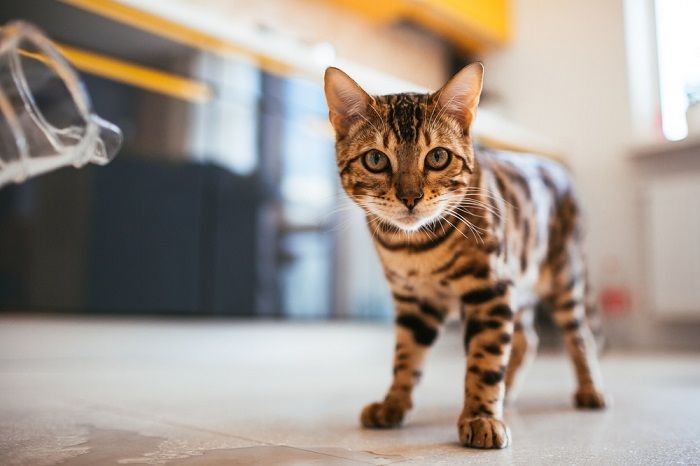
Cats are trainable and can learn to come back when called by their name or enticed by a favorite treat.
You can train your cat to return to you when you call their name or by shaking their favorite box of treats. This type of positive reinforcement can train them to come back to you when they are playing outside. Continue to do this as they wander further afield and always make a big deal about when they do return to you so they associate it with a positive experience.
Also Read: How Do You Train A Cat That Won’t Listen?
5. Implant A Microchip
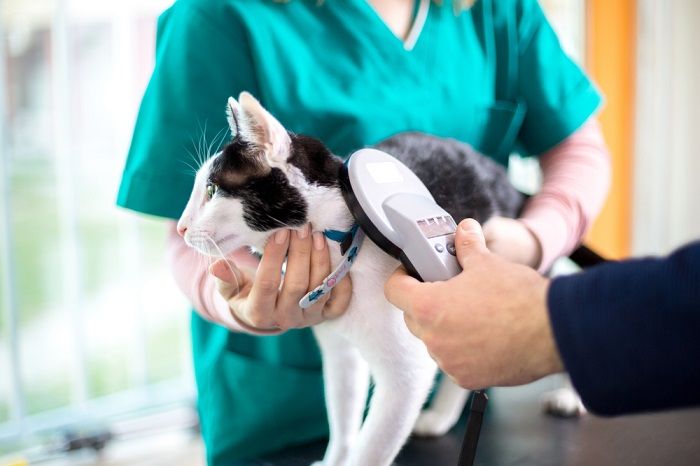
Veterinarians are able to detect if a lost cat has a microchip implanted in them, so the owner can be found and contacted right away.
It is possible to have a microchip implanted into your cat, so they are always traceable. If your cat gets lost and they are found and taken to a vet or animal shelter, the authorities will be able to identify you as the owner immediately.
Final Thoughts
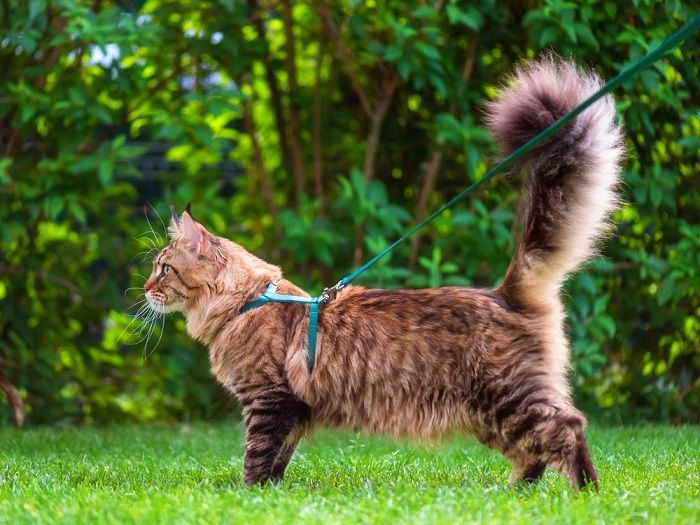
While cats have a good sense of direction, most veterinarians recommend keeping cats indoors to minimize the dangers of the outside world, including getting lost.
We know that cats have a very good sense of direction. Currently, we just don’t fully understand exactly why, but we have some workable theories. It may be due to a cat’s possible ability to harness the earth’s geomagnetic fields, or it may be due to their finely tuned senses that enable them to pick up on clues in their environment with ease. Whatever the case, it can certainly come in handy for a cat that has wandered a bit too far from home.
Also Read: The 25 Best Tips For New Cat Owners
Frequently Asked Questions
Can a cat find its way back home?
The short answer to this is yes. Cats can find their way home after getting lost or removed from their home accidentally many days, weeks, months, or even years after they originally left. There are many stories in the media of lost cats traveling many miles to get back to their homes.
Do cats recognize locations?
Cats do recognize different locations and use landmarks to help them navigate their way around. Cats are able to recognize familiar areas by using their senses, mainly their sight, hearing, and sense of smell. The detection of pheromones also plays an important role in this ability.
How do cats find their way around?
Cats have a very good sense of direction. This is partly based on their ability to detect familiar scents. Cats leave chemical messengers called pheromones for themselves and other cats which are rubbed onto objects along their journey. When they are making their way back home, cats can sense these strategically positioned scents and use them to guide them back to their homes.
-
The Homing Power of Cats, Herrick, F.
-
The Scientific Monthly, Vol. 14, No. 6 (Jun., 1922), pp. 525-539 (15 pages)
-
https://www.jstor.org/stable/6677#metadata_info_tab_contents
-
Precht, H., and E. Lindenlaub. 1954. Uber das Heimfindevermogen von Saugetieren. I. Versuche an Katzen. Z. Tierpsychologie 11: 485.
-
https://onlinelibrary.wiley.com/doi/abs/10.1111/j.1439-0310.1954.tb02171.x







